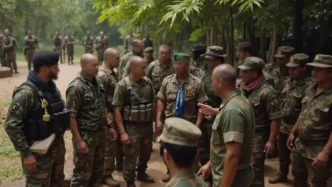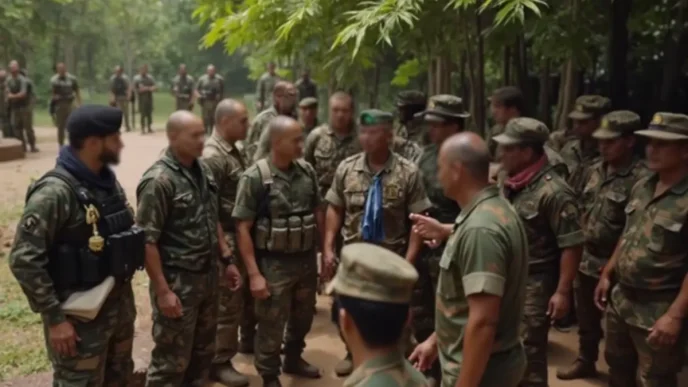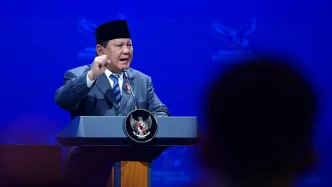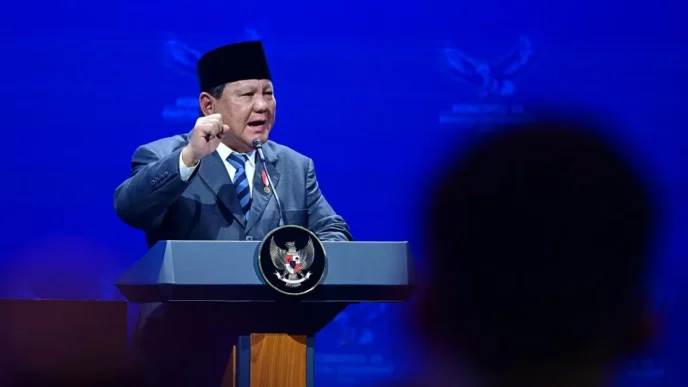Manila has stepped into a delicate diplomatic situation as three Filipino citizens face detention in China over allegations of espionage. The Philippine Department of Foreign Affairs (DFA) has classified the case as a consular issue and mobilized legal support for the detainees, who were arrested in Guangzhou. As tensions simmer between the two nations over maritime disputes and regional security, this incident adds another layer of complexity to an already strained relationship.
Legal Support for Detained Filipinos
The Philippine government has confirmed that it is providing legal assistance to the three citizens detained by Chinese authorities. Foreign Secretary Ma. Theresa Lazaro addressed the matter during a press briefing on July 14, 2025, stating, “I know for a fact that we have classified these three Filipinos that were arrested as a consular issue. There has been notification—the Chinese government notified us and this is in Guangzhou.” She further noted that a law firm has been hired to represent the detainees, emphasizing the government’s commitment to their protection.
Lazaro refrained from disclosing specific details about the case, only confirming that Filipino officials have been granted access to the detained individuals. The DFA first acknowledged the arrests in April 2025, assuring the public that the Philippine Consulate General in Guangzhou was extending all necessary support, including legal representation.
Allegations of Espionage
According to reports from Chinese state media, the three Filipinos—identified as David Servañez, Albert Endencia, and Nathalie Plizardo—were apprehended under suspicion of spying. A report by China Daily, citing Chinese security authorities, described Servañez as a long-term resident in China who was allegedly seen loitering near military facilities on multiple occasions. While specific charges and evidence have not been publicly detailed by either government, the nature of the accusations points to potential national security concerns on the Chinese side.
The allegations come at a time when China-Philippines relations are already fraught with tension, primarily due to overlapping territorial claims in the South China Sea. Incidents of espionage, whether substantiated or not, often serve as flashpoints in bilateral relations, raising questions about trust and reciprocity in consular matters.
Consular Access and Diplomatic Protocol
The notification by Chinese authorities to the Philippine government aligns with standard diplomatic protocols under international consular agreements, such as the Vienna Convention on Consular Relations. This framework mandates that detaining states inform the home country of arrested foreign nationals and facilitate access by consular officials. The DFA’s confirmation of access to the detainees suggests that, at least on a procedural level, cooperation between the two governments is being maintained in this case.
However, the limited information shared by both sides leaves room for speculation about the broader implications of the arrests. Are these detentions purely a matter of individual wrongdoing, or do they reflect deeper geopolitical undercurrents? Analysts suggest that such incidents can sometimes be leveraged as bargaining chips in larger diplomatic negotiations, particularly in the context of ongoing disputes in the South China Sea.
Broader Context of China-Philippines Relations
The detention of Filipino citizens in China cannot be viewed in isolation from the broader dynamics of China-Philippines relations. Over the past decade, the two countries have clashed repeatedly over maritime boundaries, with the Philippines asserting its rights under the 2016 Arbitral Tribunal ruling that invalidated China’s expansive claims in the South China Sea. Beijing, however, continues to reject the ruling, maintaining a strong military and economic presence in the disputed waters.
These tensions have occasionally spilled over into other areas of bilateral engagement, including trade, tourism, and citizen interactions. Filipino workers and residents in China, as well as Chinese nationals in the Philippines, often find themselves navigating a landscape shaped by political friction. The case of the three detainees, therefore, may resonate beyond the immediate consular context, potentially influencing public sentiment and policy decisions in Manila.
Moreover, the timing of the arrests—coming amid heightened regional security concerns—adds another dimension to the story. With the United States and other Western allies bolstering their strategic partnerships with the Philippines through military exercises and defense agreements, China may perceive certain activities by Filipino nationals as aligned with foreign interests. While there is no verified evidence linking the detained individuals to such broader agendas, the espionage allegations inevitably invite speculation about underlying motives.
Domestic Reactions and Public Sentiment
In the Philippines, news of the detentions has sparked concern among families of overseas Filipino workers (OFWs) and residents in China. The DFA faces pressure to ensure the safety and fair treatment of its citizens abroad, particularly in cases involving serious allegations like espionage, which can carry severe penalties under Chinese law. Public discourse on social media platforms reflects a mix of anxiety and frustration, with many Filipinos calling for transparency and swift action from their government.
At the same time, there is a palpable wariness about escalating the issue into a full-blown diplomatic row. The Philippine government has historically sought to balance its assertive stance on territorial disputes with pragmatic engagement on economic and consular matters. Foreign Secretary Lazaro’s measured tone during the press briefing—avoiding inflammatory rhetoric while affirming support for the detainees—appears to reflect this delicate balancing act.
Legal and Human Rights Considerations
From a legal perspective, the hiring of a law firm to represent the detained Filipinos signals Manila’s intent to ensure due process. China’s legal system, however, operates under different principles compared to the Philippines, often prioritizing state security over individual rights in cases involving espionage or national defense. This disparity can complicate efforts to secure fair treatment or leniency for foreign nationals.
Human rights organizations have long raised concerns about the treatment of detainees in China, particularly in high-profile or politically sensitive cases. While there is no indication at this stage of mistreatment in the case of the three Filipinos, the DFA’s role will likely include monitoring their conditions and advocating for their rights under international law. The challenge lies in navigating these advocacy efforts without provoking a backlash that could further jeopardize the detainees’ situation.
Regional Implications and Security Concerns
Beyond the bilateral sphere, the incident raises questions about regional security dynamics in Southeast Asia. Espionage allegations, whether proven or not, can heighten mistrust among nations and fuel narratives of external interference. For ASEAN member states like the Philippines, maintaining a unified front on regional stability often requires deft handling of individual disputes with major powers like China.
Neighboring countries may also take note of how this case unfolds, as it could set precedents for consular cooperation and the treatment of foreign nationals accused of security-related offenses. Singapore, Malaysia, and Vietnam—all of which have their own complex relationships with China—may quietly observe the Philippine response as a litmus test for balancing national interests with regional diplomacy.
Looking Ahead: Unresolved Questions
As the case of the three detained Filipinos progresses, several questions remain unanswered. What specific evidence underpins the espionage allegations, and will it be made public? How will the legal proceedings unfold, and what role will diplomatic negotiations play in securing the detainees’ release or fair treatment? Perhaps most critically, will this incident mark a new point of contention in China-Philippines relations, or can it be resolved through quiet, behind-the-scenes diplomacy?
For now, the Philippine government appears focused on providing immediate support to its citizens while maintaining open channels of communication with Chinese authorities. The DFA’s actions in the coming weeks will likely shape not only the outcome for the three individuals but also the broader trajectory of bilateral ties. As this situation unfolds, the interplay between consular duties and geopolitical realities will remain a key point of focus for observers in Manila, Beijing, and beyond.
















